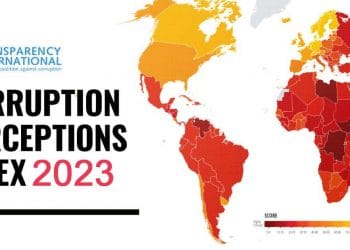Preventing corruption key to helping hardest hit
Issued by Transparency International Secretariat
The International Monetary Fund should include transparency and anti-corruption measures in coronavirus-related emergency relief programs to ensure that the billions of dollars it is disbursing to dozens of countries help the most vulnerable, Transparency International, Human Rights Watch and Global Witness said today in a letter to the IMF Executive Board.
“The urgent need to support countries in their efforts during the pandemic makes transparency and accountability in government spending critically important,” said Delia Ferreira Rubio, Chair, Transparency International. “The crisis requires the IMF to make funds available as quickly as possible, but it shouldn’t abandon its commitment to fighting corruption. The scale of the crisis raises the risks and dangers of the theft of public money that should be used to save lives and rebuild livelihoods.”
Over 90 countries have already requested emergency assistance, the highest number in the IMF’s 75-year history. Unlike with the fund’s standard programs, emergency funds are generally disbursed in lump sums, with limited, if any, transparency, conditions, or reviews.
In recent years, the IMF has put a renewed emphasis on combatting corruption as part of a broader recognition that resilient economies require good governance, inclusive growth, and strong social protections. In April 2018, it adopted a new framework that committed the fund to systematically address corruption risks in its surveillance and lending.
“The IMF’s pledge to unleash up to $1 trillion to help governments in the wake of the coronavirus pandemic holds extraordinary potential to save lives and protect the people hardest hit,” said Sarah Saadoun, Business and Human Rights Researcher, Human Rights Watch. “With lives on the line, it is critical for the IMF to maintain its commitment to stem corruption so that people can hold their governments accountable for where the money goes.”
Dramatic increases in the amounts and speed of spending, as well as distractions or breakdowns that interfere with oversight mechanisms, can allow powerful actors to take advantage of the crisis for their own benefit. Even at this early stage of the pandemic, there are dozens of media reports of corruption and other criminal activities related to COVID-19 spending.
Simon Taylor, Founder at Global Witness, said: “Recent years have seen the IMF creatively use its leverage to help drive anti-corruption reforms. The pandemic is wreaking havoc with public health and the economies of nations, so it is right for the IMF to step in to help – but we call for the Fund’s leadership to make sure that rapid disbursements do not come at the expense of basic transparency and sensible anti-corruption measures, that should be required of recipient countries.”
Corruption’s drain on public resources always harms governments’ ability to provide adequate health care, education, and other rights, the groups said. During this crisis, it can mean the difference between life and death; adequate food or hunger; a house or homelessness. Moreover, the IMF can systematically include basic measures to reduce the risks of mismanagement and corruption without compromising the speed and flexibility the crisis demands. The organizations proposed four such measures:
- IMF transparency. The fund should publish all information related to programs on its website as soon as possible and signal its continued commitment to good governance in high-level public statements and private meetings with governments.
- Transparency and Accountability in Public Procurement. To mitigate risks such as hidden contracts, overpricing, and collusion, governments should be provided with support and commit, at a minimum, to: (1) publish all public contracts; (2) use open and competitive bidding, and strictly limit the use of emergency non-competitive processes; (3) publish the names and beneficial ownership information of companies awarded contracts; and (4) empower anti-monopoly agencies, where they exist, to monitor market conditions in critical sectors to avoid collusion or overpricing.
- Auditing by government and independent monitors. Governments should commit to make all information on how emergency relief funds are spent available to internal auditors and, as soon as practicable, to independent auditors. Priority should be given to critical areas such as health, public procurement, infrastructure and social security expenditures.
- Implementing and strengthening existing anti-corruption and anti-money laundering frameworks. The Fund should identify and seek to strengthen gaps in such frameworks, including encouraging G20 states and major financial centers to tackle these shortcomings.
For any press enquiries please contact
Michael Hornsby, Transparency International press office (Berlin)
T: +49 30 34 38 20 666
E: press@transparency.org
Sarah Saadoun, Human Rights Watch (New York)
T: +1-917-502-6694 (mobile)
E: saadous@hrw.org.
Twitter: @sarah_saadoun
Dominic Kavakeb, Global Witness (London)
T: +44 75 45 965 302
E: dkavakeb@globalwitness.org








